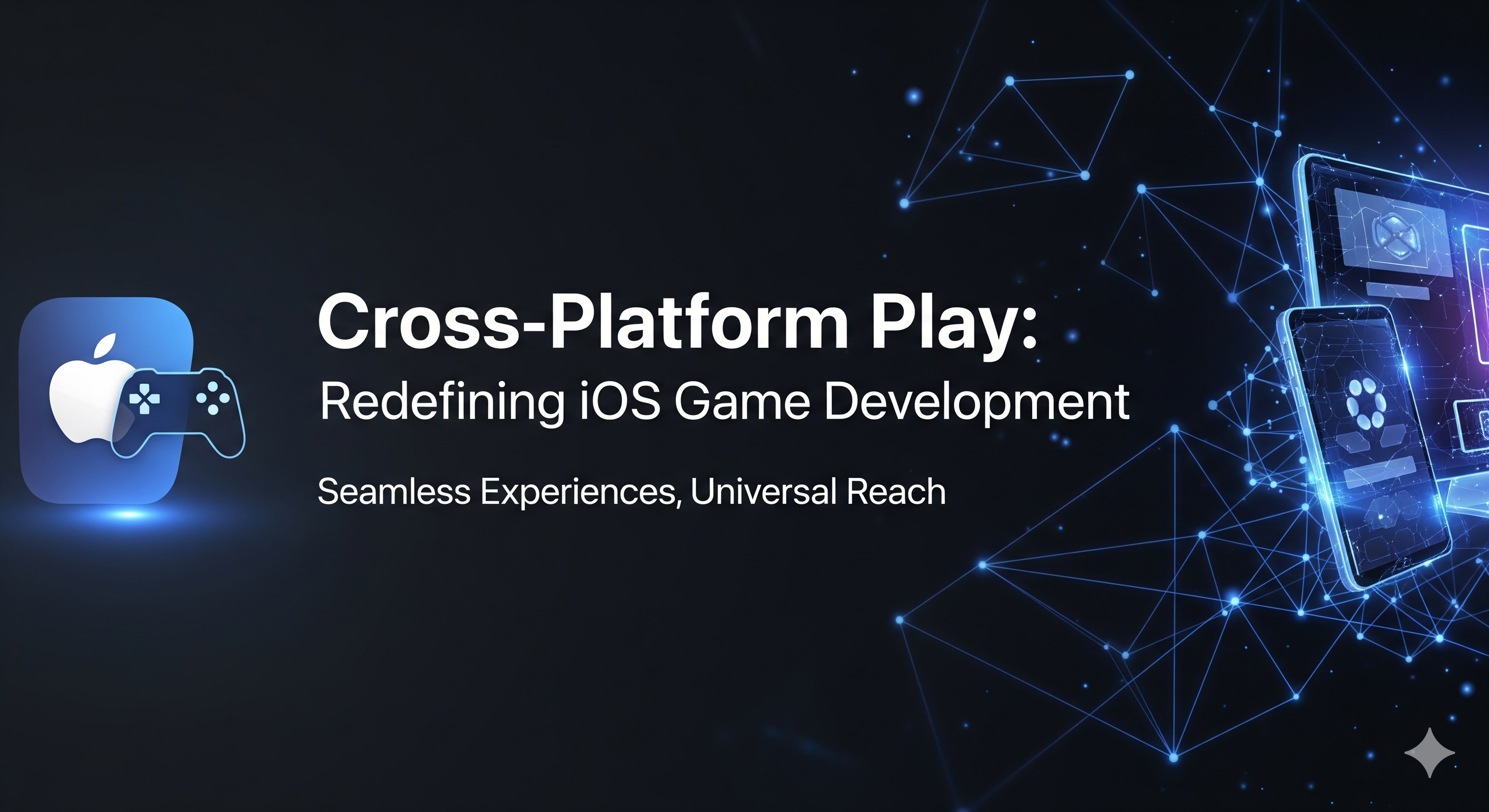Cross-Platform Play: Redefining iOS Game Development

In the ever-evolving digital landscape, game development is undergoing a major transformation. One of the most exciting advancements in recent years has been the rise of cross-platform play, a feature that allows players using different devices to enjoy the same gaming experience seamlessly. For iOS game developers, this trend is particularly significant, as it is not only redefining how games are built but also how users engage with them.
With the UK gaming market projected to grow steadily, iOS game development is no longer limited to creating experiences only for iPhones and iPads. Instead, developers are looking beyond a single platform and embracing tools and technologies that allow their games to thrive across multiple devices, from iOS to Android, PC, and even consoles.
Why Cross-Platform Play Matters for iOS Game Development
Traditionally, mobile gaming was siloed—iOS game developers built apps exclusively for Apple devices, while others catered to Android or PC. This separation meant that friends often couldn’t play the same game if they owned different devices. Cross-platform play eliminates this barrier.
For developers, the benefits are clear:
-
Wider audience reach – Games can be enjoyed by more users, regardless of the device they own.
-
Increased revenue potential – By supporting multiple platforms, developers tap into larger markets.
-
Longer game lifecycles – Cross-platform titles encourage community building and reduce churn rates.
For players, it’s all about accessibility and inclusivity. The ability to compete or collaborate with friends, no matter what device they’re on, is revolutionizing how users perceive mobile gaming.
The Role of iOS Game Developers in the Cross-Platform Era
Apple’s ecosystem has always been known for its high performance, sleek design, and unmatched user experience. This makes iOS game development a critical piece of the cross-platform puzzle. iOS game developers are tasked with creating games that not only run flawlessly on iPhones and iPads but also sync effortlessly with Android, Windows, and console systems.
This requires a strong command of tools like:
-
Unity and Unreal Engine – Widely used for building scalable cross-platform games.
-
Xcode – Essential for refining performance and ensuring compatibility within the Apple ecosystem.
-
Cloud-based services – For seamless progress syncing across devices.
By leveraging these technologies, game developers can ensure that iOS players enjoy the same experience as their friends on other platforms.
How Cross-Platform Play Redefines User Experience
Cross-platform integration isn’t just a technical advancement—it reshapes the player experience in meaningful ways. For example:
-
Unified Communities – No more fragmented player bases. Whether on iOS, Android, or PC, everyone is part of the same ecosystem.
-
Seamless Progression – Cloud saves allow players to start a game on their iPhone and continue later on their console or PC.
-
Balanced Competition – Developers are increasingly focused on fair matchmaking, ensuring players on mobile aren’t disadvantaged against those on more powerful devices.
For users in the UK and beyond, this inclusivity is turning casual mobile gaming into a shared social experience, comparable to console and PC gaming.
Challenges in Cross-Platform iOS Game Development
While the opportunities are immense, iOS game developers face unique challenges in implementing cross-platform play:
-
Hardware differences – Balancing performance between iOS and lower-spec devices can be difficult.
-
App Store restrictions – Apple maintains strict guidelines for app development, sometimes creating hurdles for seamless cross-platform integration.
-
Network stability – Ensuring smooth online multiplayer experiences across devices requires robust infrastructure.
Despite these challenges, developers who successfully overcome them are positioned to capture a loyal and diverse player base.
The Business Impact: Why Brands Invest in Cross-Platform Games
From a business perspective, investing in cross-platform iOS game development is proving to be a smart strategy. Here’s why:
-
Scalability – Games aren’t locked into a single ecosystem, allowing publishers to scale globally.
-
Increased engagement – Players are more likely to stay invested in a game when they can enjoy it with friends across platforms.
-
Monetization opportunities – In-game purchases, ads, and subscriptions reach larger audiences, improving ROI for both indie developers and established studios.
This explains why top gaming brands are adopting cross-platform strategies and why demand for skilled iOS game developers continues to rise in the UK.
Future of Cross-Platform iOS Game Development
Looking ahead, the future of gaming will be defined by connectivity and flexibility. We can expect:
-
More cloud gaming services integrating with iOS devices.
-
AR and VR advancements that extend beyond mobile and connect with headsets and consoles.
-
AI-powered development tools that simplify cross-platform app development for indie creators.
For game developers, this future is both challenging and rewarding. The ability to build experiences that transcend platforms will become a defining skill, making iOS game development more dynamic than ever before.
Conclusion
Cross-platform play is more than just a trend—it’s a revolution that is changing the way games are built, played, and monetized. For iOS game developers, this means adapting to a new era where inclusivity and seamless experiences are the norm. By embracing modern tools and innovative strategies, developers can deliver games that captivate players across devices, foster thriving communities, and create long-term business success.
As the UK gaming market continues to expand, investing in iOS game development with cross-platform integration is no longer optional—it’s essential. Whether you’re a studio, brand, or indie creator, the message is clear: the future of game development lies in building experiences that break down barriers and bring players together, wherever they are.
- Art
- Causes
- Crafts
- Dance
- Drinks
- Film
- Fitness
- Food
- Games
- Gardening
- Health
- Home
- Literature
- Music
- Networking
- Other
- Party
- Religion
- Shopping
- Sports
- Theater
- Wellness


